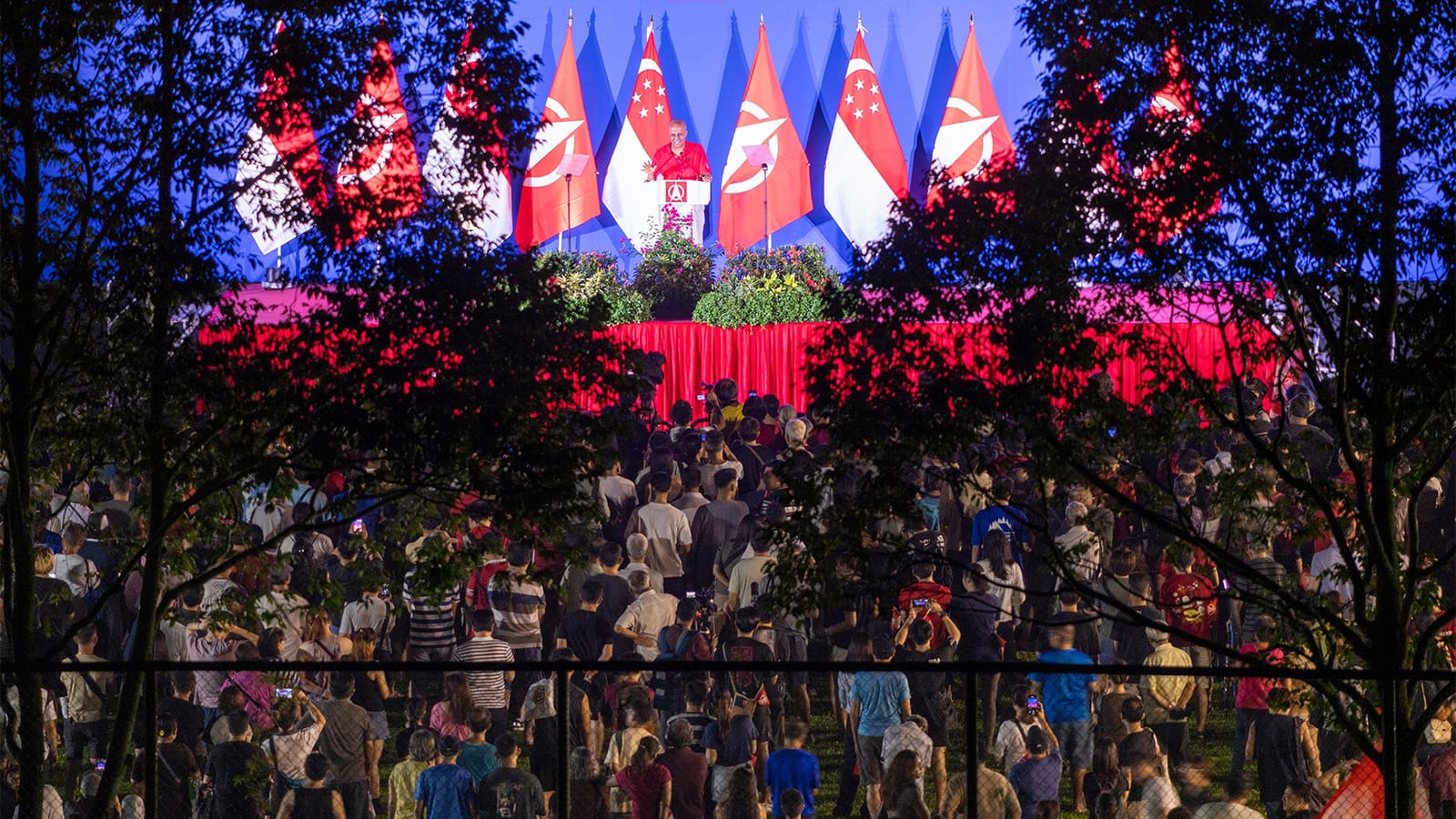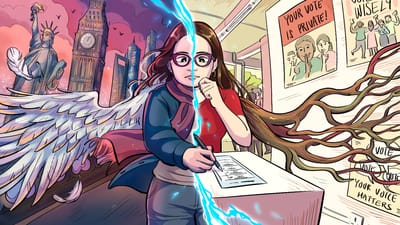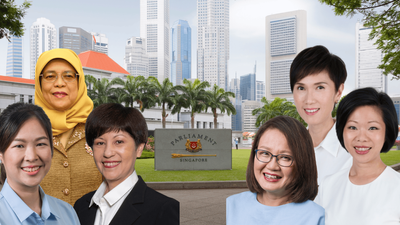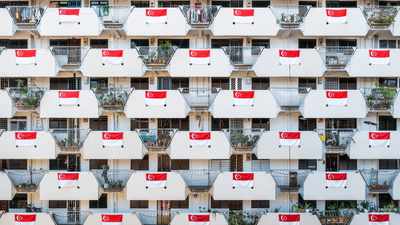Editor’s note: These views are Paul’s, not Jom’s. We’re not endorsing any party in the upcoming election. We’ve previously published commentaries from politicians, including Harpreet Singh of the Workers’ Party as well as Lawrence Pek, candidate, and Leon Perera, volunteer, of the Progress Singapore Party (PSP). We’ve also invited others, including Hazel Poa and Lawrence Wong, to publish commentaries here.
For many years, the dreaded posting for a 12-year-old Singaporean was the Normal (Academic) or worse, the Normal (Technical) stream. Kids (and their parents) knew that, theoretically, they had a chance to get into a university. But the number who actually made that leap was miniscule. Most parents would try to find a way to get their kids into an Express stream class by hook or by crook. The idea that you could disguise a second-tier educational pathway by calling it “normal” has since died a natural death. Students who do not make it to the elite IP or SAP schools are no longer streamed. They can now be part of full subject-based banding. But the question of what “normal” is, remains—not just for children but societies as a whole.
Recently, the concept of “normal” has been turned upside down all over the world. Western “democracies” now consider it normal to bomb children and their rescuers or execute paramedics in the name of stamping out “terrorism”. The US President considers it “normal”—“righteous” even—to arrest judges or ignore an adverse 9-0 Supreme Court ruling. The veneer of “civilisation” has been essentially stripped from countries that used to claim the moral high ground. When my friends and colleagues lament these events, I usually reply “Welcome to our world”. Or, as Singaporeans would say, “Now then you know!”
Why do I say “Now then you know”? Well, this election season is a good illustration. For years, it has been considered “normal” to have 60 percent of the people represented by nearly 90 percent of the parliamentarians because it happens in other “mature democracies” with a first-past-the-post system. It has been considered “normal” to have a nomination hour, not a day, that would allow all parties to make strategic moves, not just those who had the ability to anticipate a walkover (so much so that they have had to say it three times!).
It has been considered “normal” to have a committee chaired by the secretary of the leader of the ruling party draw up electoral boundaries, a month before elections. It has long been considered normal to allocate air time in debates and broadcasts based on existing power structures (number of candidates fielded), to preserve rulers’s monopoly. The emergence of new political forces cannot “normally” be tolerated as it will upset the status quo, trouble the ruling elite, and maybe cause “instability”. Although in the US, the current leadership of a 170-year-old party has caused a considerable amount of instability both in that country and beyond. So much so, that this instability has become a key plank in the platform of Singapore’s monopolistic party.
Sign up for Jom’s weekly newsletter
Our newsletters combine weekly updates about Singapore with a “build-in-public” narrative, in which we tell readers about our start-up journey.
No spam. Unsubscribe anytime.
In their book, How to rig an election, Nic Cheesman and Brian Klass argue that contrary to popular belief, authoritarian leaders who hold regular elections last longer than those who don’t. The authors point out that the most successful authoritarians predetermine the results of an election long before the first ballot is cast. That may be done, for instance, through the time-honoured American process of gerrymandering, through controlling media—traditional or social—or through raising the barriers for contesting elections.
Unfortunately, these practices are common even among “sophisticated democracies” in the “West”. As a result, election “rigging” comprises “normal” practice—generally accepted by most save a few academics, and those on the fringes of civil society. In fact, the authors argue that a lively civil society is one of the best ways of exposing “normal” for the self-serving political process that it really is.
During elections, the need for means of identification not accessible to certain social groups has been used to systematically disenfranchise specific populations. For example, recent developments in the United States may affect women who take on their husband’s surnames after marriage.
In Singapore, there is no disenfranchisement per se. But the serial numbers on our ballot papers are linked to individual registration numbers, which intimidates some. This is despite safeguards that ensure an individual’s vote is untraceable. Yet, it seems like the fear of the serial number remains; as does the reason for its retention—to detect illegally cast votes, although that has never happened in 70 years of elections in Singapore. Perhaps the value of intimidation is also part of the process, or it may simply be the kiasu nature of our current political leadership who want to be prepared for every eventuality (apart from the intentions of Allianz, and a few other blind spots).
The voter’s name and serial number are announced at the polling station. This is ostensibly to allow lay people from the different parties, armed with the register of electors, to double check what the world’s most efficient civil servants have already checked rigorously. I have seen neighbourhood grassroots leaders look intently at voters, as if to remind them who the government of the day is, while a hapless volunteer from an opposition party grins encouragingly at the same voter. It is a fair process as both sides have equal representation, but somewhat unnecessary. Perhaps, there is some benefit to having people from both sides at the polling station, in that disputes can be quickly settled so that the “normal” voting process can take place.
The most bizarre of what has been normalised in Singapore though not elsewhere—as far as I know—comes after the elections. Losing candidates in opposition wards are promptly appointed grassroots advisors and given custody over the property and activities of the People’s Association. This allows them to organise a wide range of community-level activities (which, in most cases, have not succeeded in changing their electoral fortunes). Yet, the process persists—in Hougang for more than 30 years! Electoral losers are also the ones presenting awards to bright young students, and often the ones called on to officiate at various civic events in preference to the person chosen by the voters. This has been accepted as normal since JB Jeyaretnam’s time in 1981 (although in his autobiography, Goh Chok Tong, former prime minister, reports that the Cabinet was not unanimously in favour of excluding electoral winners from the PA spoils of victory). And so we accept and live with the old normal.
The good news is that these strange yet “normalised” electoral procedures need not last. The makers of the US constitution viewed democracy as the preserve of white, male landowners for what they thought were sound and valid reasons. For years, denying women the vote (In Switzerland’s Appenzell, women weren’t allowed to vote in Cantonal elections until 1990) was thought to be normal. Slavery, polygamy, child labour and a host of other offences were once the height of normalcy.
Societies change, mostly for the better, in the long run (unless you are a white, male, slave-owner who longs for the old plantation home). Change is sometimes violent, but can be driven by economic events; as in the collapse of the New Order regime in Indonesia with the Asian Financial Crisis. Or it could come through a loosening from the top as in Taiwan. Or simply through the ballot box from a tired population, as in the UK after world war two. As an optimist, I do think that we can reach a new normal, one that is a bit more inclusive and truly democratic for our nation.
Paul Ananth Tambyah is currently an infectious diseases physician and a professor at a leading University. A Saint, he did his undergraduate education in NUS and went on to postgraduate studies at the University of Wisconsin in Madison. Since returning to Singapore in 1999, in addition to his academic and professional pursuits, he has been active in civil and political life as a founding member of MARUAH and is currently Chairman of the SDP and a candidate for Bukit Panjang SMC in GE 2025
Letters in response to this piece can be sent to sudhir@jom.media. All will be considered for publication on our “Letters to the editor” page.
If you enjoy Jom’s work, do get a paid subscription today to support independent journalism in Singapore.







